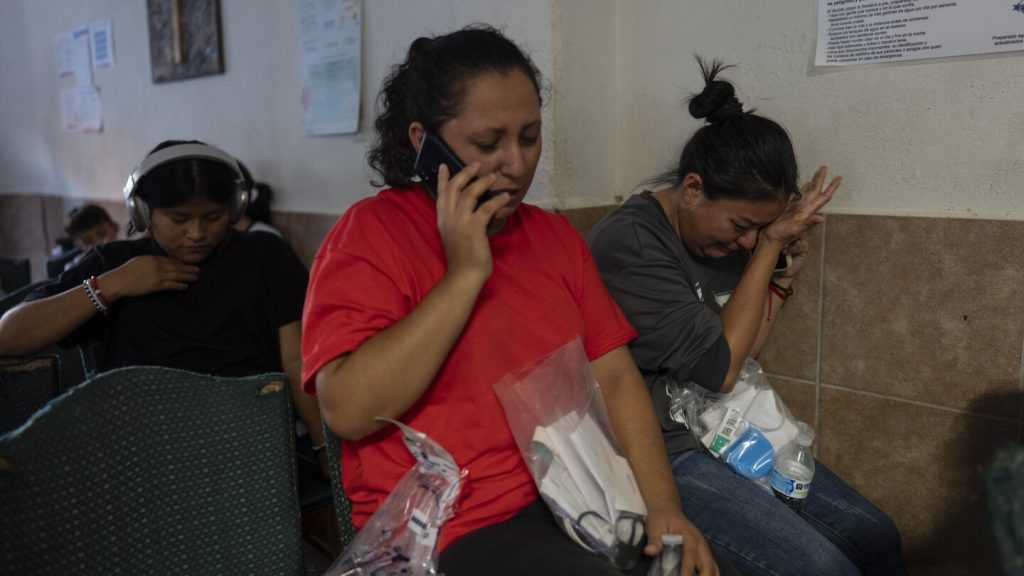Homeland Security Secretary Alejandro Mayorkas acknowledged that the United States faces challenges in deporting migrants to certain countries, citing issues with diplomatic relations and obtaining travel documents. This has led to a backlog of deportees at migrant shelters in Mexico, with the San Juan Bosco shelter receiving an increased number of deportees on a daily basis since President Joe Biden’s executive order suspended asylum processing at the U.S.-Mexico border. The asylum halt, which went into effect on June 5, has resulted in a 40% decline in arrests for illegal crossings at the border, impacting mostly Mexicans and other nationalities that Mexico agrees to take, such as Cubans, Haitians, Nicaraguans, and Venezuelans. These individuals are being deported at a higher rate due to challenges in deporting people to countries in Africa, Asia, Europe, and South America.
The Border Patrol’s Tucson sector, a busy corridor for illegal crossings, has experienced a significant decrease in daily arrests following the implementation of the asylum ban. Many Mexicans and migrants from other nationalities face challenges in deportations, especially those from countries like Cuba, Mauritania, Guinea, and Senegal. Border agents in Arizona have been overwhelmed by the difficulty in deporting these nationalities, leading to overcrowded processing centers and shelters in Mexico. Many Mexican migrants try to evade capture by climbing over walls or crossing near Tucson in Nogales, Arizona. Those who are captured may be held for up to six days if they express fear of deportation under the asylum ban and seek alternative forms of protection.
The processing center near Tucson International Airport is now accommodating single adults and families, in addition to unaccompanied children. Those who fear deportation undergo a screening interview, which has become more stringent following Biden’s asylum halt. Many migrants who fail the interviews are deported to Nogales, where they end up at shelters like San Juan Bosco. These deportees face challenges in expressing their fears of returning home due to cartel violence or other threats, as the screening process has become more rigid. Many deportees, like Ana Ruiz and Anahi Sandoval, feel they were not given a fair chance to explain their fears and concerns during the screening process.
There have been complaints about the screening process pre-dating Biden’s asylum halt, with Mayorkas expressing confidence in the guidelines being followed by agents and officers. However, some migrants, like Araceli Martinez, feel that they were not given the opportunity to express their fears of returning home to dangerous situations. The new rules require migrants to ask unprompted or show obvious signs of distress, such as crying, to indicate their fear of returning home. Despite the challenges faced by Mexican deportees and other migrants, they continue to navigate the complex asylum and deportation process in hopes of finding safety and security in the United States.
Overall, the implementation of the asylum ban has had a significant impact on Mexican migrants and deportees from other nationalities, leading to challenges in the deportation process and increased pressure on migrant shelters in Mexico. The strict screening process for expressing fear of deportation has left many deportees feeling unheard and unfairly treated. As the U.S. government works to address diplomatic and operational challenges in deporting migrants to various countries, Mexican deportees like Ruiz, Sandoval, and Martinez continue to share their stories and struggles in seeking asylum and protection in the face of adversity. The ongoing debate over immigration policies and deportations at the border highlights the complexities and hardships faced by migrants seeking safety and refuge in the United States.


